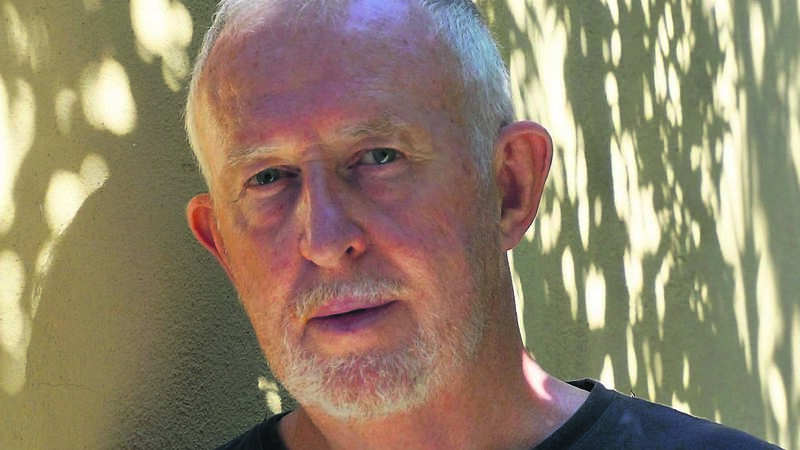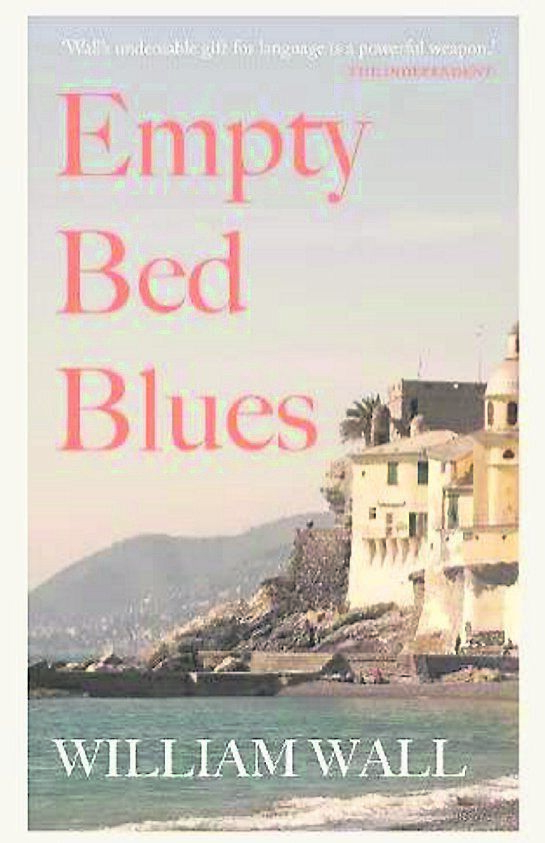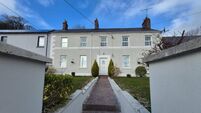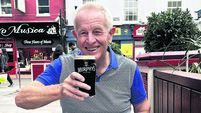Loving Italian life, but author William Wall’s feet are ‘firmly planted in Cork’

William Wall is appearing at the West Cork Literary Festival on July 12. Picture: Liz Kirwan
ITALY has aways been a draw for writers and artists, who replenish their senses from the unique perfume of life which it exudes.
One Cork writer who has had a long-standing affair with the country is William Wall, who grew up in Whitegate, and went on to became the first Poet Laureate for Cork city.
He is a prolific prize-winning author, not just of poetry, but also of novels and short stories, and his novel This Is Country was long-listed for the Booker prize.
Wall spoke to me from his base in Camogli Liguria, where his latest book Empty Bed Blues is set.
The book recounts the tale of Kate Holohan, who flees to Italy in the aftermath of her husband’s sudden death, and is grappling with the revelations of the extent of his disastrous financial speculation, his secret mistress, and his love nest in the pretty Italian fishing village.
As her new life unfolds in Italy, the betrayed Kate is befriended by an older woman, Anna Ferrara, a former Resistance fighter and journalist, and this friendship is at the core of the book.
First published in Italy as La Ballata Del Letto Vuoto, Empty Bed Blues has been very well received by the Italian reading public, and gives more than a subtle nod to another Irish writer who previously spent long sunny days in Italy - James Joyce.
The occupation given by writer William to his character of Kate is that of Joyce scholar.
“I was beginning to write the book when I was in Trieste and surrounded by Joycean scholars, so making Kate a Joycean was a kind of tribute to them,” he reflected.
Trieste is a beautiful city, and still is, as in Joyce’s time, a melting pot of several cultures. Most notably, it is close to the border with Slovenia and you feel the Slovenian influence everywhere.
“In Joyce’s day, of course, it was part of the Austro-Hungarian empire, and Joyce’s legacy can be found everywhere in Trieste, and when I was there for the summer school there was no escaping him.
“It was a wonderful experience, but I don’t feel as if I’ve gone into exile as Joyce did.

“I come and go, and that’s something he could almost never do. My feet are still firmly planted in Cork.”
It’s not only Dubliners, but Corkonians also like to claim Joyce as being one of their own. His father John Stanislaus Joyce, was born in Cork city, the only son of a corporation official from Fermoy, where John later attended school.
“Funnily enough, I think Joyce is more of a European writer than a Dubliner, and I think Cork is a very European city,” said William. “That said, we shouldn’t exaggerate our claims.
“It was Dublin, after all, that he celebrated in his writing. We have a modest claim to his family, and that is worth celebrating.
“Cities all over the world celebrate Joyce on Bloomsday, and I’ve been involved in some of those celebrations in Italy.
“I’m inclined to think of Ulysses as a blend of Trieste and Dublin.
“I feel very strongly that the character of Bloom was influenced by what his good friend and fellow writer Italo Svevo told him about Jewish life and thought. I don’t think Joyce could have written Bloom if he hadn’t become friends with Svevo, this is clear from John McCourt’s book about Joyce and the city.
Italians are crazy abut Joyce. I’m rarely at an event at which someone doesn’t come up to me to tell me that they are reading, or have read Ulysses, and love it.
“I’m not really sure why they have such a strong connection with what is, after all, an Ireland of a hundred years ago.
“Recently, a couple at a party told me that they had read Ulysses together five times and only on the fifth reading did they understand it, which I remarked was a heroic commitment to literature!
“When I was young, Joyce was somewhat resented. He had written nasty stuff about Ireland and had rejected it.
“He had left Ireland in her hour of need and gone off to be a vagabond around Europe. Ulysses was a ‘dirty book’ and there were ‘dirty bits’ in his other books too.
“It was a pathetic, narrow-minded nationalist viewpoint. I think we needed to work through our post-colonial resentment to come to terms with what he had to say.
“On the other hand, there are things about the adulation he gets that irritate me too.
“He did have harsh things to say, and he was very much a European writer. He’s become a national icon, exploited for tourism, and treated like a daft old chap in the corner. There’s a lot of shallow adulation which ignores his criticism of Irish society.
Nowadays, with the rise of the far right, we see the very things he satirised being parroted all over again - the narrow-minded nationalism, the hostility to foreigners, the fake patriotism, the racism.
“We ignore Joyce’s political message in favour of his detailed depiction of Dublin in the rare oul times - but we ignore it at our loss.”
William also spent many years as an English teacher in Presentation College Cork, where he nurtured the talents of another famous son of the rebel city - the actor Cillian Murphy.
“ I had the pleasure of teaching Cillian English. He was a natural student with an instinctive understanding of literature. He credits me with encouraging him into acting, but I’m quite certain he’d have found his way there anyway. I’ve followed is career with interest, and I’m a big fan of his work.
“I often think that teaching is one of the few jobs where every day is one where you can change someone’s life. It doesn’t always happen of course, not even often, but it does happen.
“Teaching is, or should be, about making people think and challenging their perceptions of the world.
“I suppose that happens one day in a hundred, but that one day is worth all the rest.”
William Wall will be at the West Cork Literary Festival on July 12 at 1pm in Bantry Library.
His latest novel, Empty Bed Blues, is published by New Island Books.







 App?
App?


